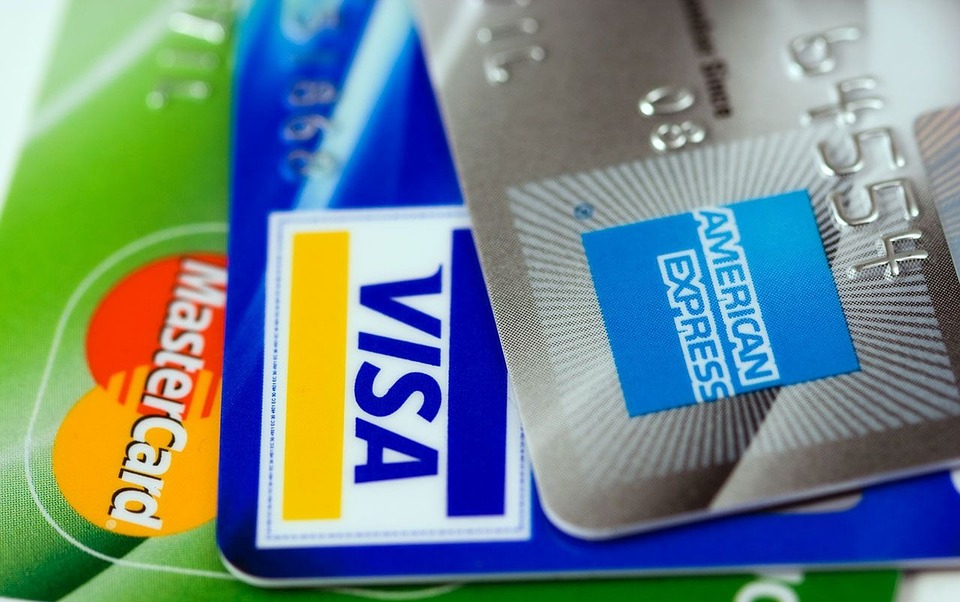New Year’s Resolutions are notoriously hard to keep up with. By February or March, many promises to eat healthier or go to the gym more often are forgotten. However, there are some resolutions that could make your financial situation (and your credit score) healthier! And they’re easy too! Here are five suggestions for New Year’s Resolutions to improve your credit score!
1) If You Don’t Have a Credit Card, Get One
If you’ve never had to use any type of credit, you may not even have a credit score. If so, use this New Year as an opportunity to get a credit card. Even if you feel like you don’t need a credit card, it’s important to start building a good credit score, which happens when you pay off debt (such as for a credit card bill or a car loan). Having a high credit score will be super helpful if you ever need to apply for a loan or get a mortgage – usually, better rates are available to borrowers with high credit scores, which means you could have lower monthly payments and save a whole bunch on interest! Having a good credit score can also be helpful when trying to find apartments to rent or even for certain job applications. It normally only takes a few months to build a credit score. Once you get your new credit card, be sure to follow the rest of these resolutions!
2) Pay Bills on Time (or Early)
A few too many missed payments and your credit score won’t be considered top-tier. However, even if you have poor credit history, you can increase your credit score simply by paying your bills on time. In fact, you may see improvement in just a few months! If you’re likely to forget when bills are due, see if you can set up automatic payments, reminders on your phone or calendar, or even try and pay your bills early to give yourself some extra time.
3) Don’t Max Out your Cards
Most people know that paying bills and loans on time (or not) affects your credit score, but how you use your credit cards can also impact your credit score. This is due to something called your Credit Utilization Ratio. Your Credit Utilization Ratio is normally represented in a percentage, and it’s the amount of credit you use divided by your total credit limit. (For example, if you have a total credit limit of $1,000, and you have an open balance of $500, then your Credit Utilization Ratio is 50%). Maxing out your credit cards means that your Credit Utilization Ratio is 100%, which isn’t good. It’s generally best to keep your ratio at about 30%, as lower Credit Utilization Ratios often shows lenders that you’re responsible with your credit. To keep your ratio low, be aware of how much you’re charging on each card and pay off your balances regularly (especially after many purchases or a large purchase).
4) Only Open New Accounts when Necessary
It can be tempting to open new credit card accounts all the time if they come with special offers or low rates, but only open new accounts when absolutely necessary and when it’s beneficial for your financial situation (for example, getting a credit card for the first time). Each time you apply for a credit card, a hard inquiry is pulled on your credit score. This can actually lower your score by a few points because it shows lenders that you need more credit than what you currently have available. This usually isn’t an issue if it’s a single inquiry, but too many hard inquiries can bring your credit score down. Not only that, but having more credit cards can make it harder to remember to pay all the bills associated with them, and can lead to overspending.
Note – there’s a difference between a hard inquiry and a soft inquiry. A soft inquiry is what happens when you or someone else checks your credit score for informational reasons or to get a sense of your financial history (such as for a background check). Soft inquiries don’t affect your credit score, so don’t be afraid to check it! Your credit score is an important piece of financial information.
5) Get a Copy of your Credit Report
Your credit report is different from your credit score, but it’s a good idea to check it to make sure you’re being accurately represented. Your credit score is a number based off of information on your credit report, so if something on your credit report isn’t accurate, you may be able to dispute it. Checking your credit report is also a good idea, as any discrepancies may mean your identity has been stolen. You can get a free copy of your credit report once a year from AnnualCreditReport.com, a website created by the three major credit bureaus (Equifax, Experian and TransUnion) and authorized by the federal government. This is a one-and-done resolution, which means you can get it out of the way early! Even better – you can plan to do it annually to keep an eye on your credit history.
If you make good financial decisions and pay your bills regularly and on time, you’ll continue to build a good credit history which will give you a good credit score. Don’t fret if you’ve made mistakes in the past – the more time that passes, the less of an impact missed payments and other negative situations have on your credit score. The important thing is to make those payments every month to show that you’re responsible with your credit. If you follow these credit resolutions, your credit score will be in the Excellent range before you know it!
Ready to keep on learning new facts for the new year? Check out these other articles right here on RateZip!
Does Checking Your Credit Score Lower It?






















